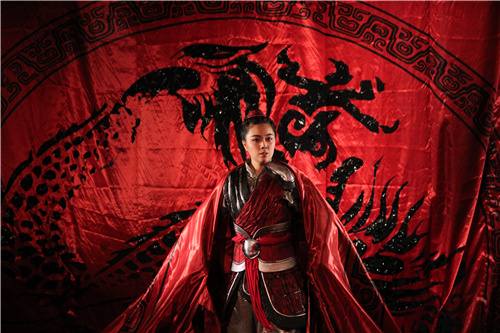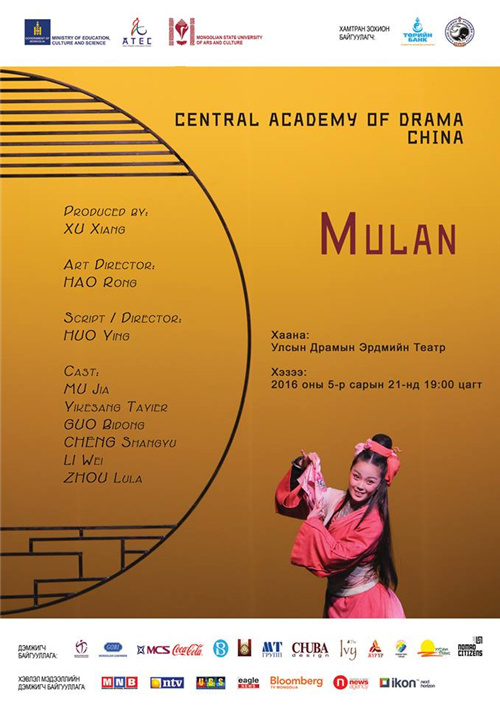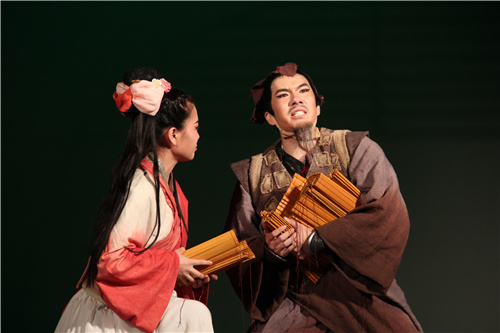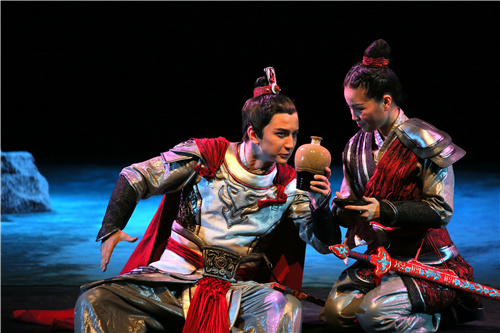
Director: Huo Ying
Playwright: Huo Ying
Institution: The Central Academy of Drama
Venue: National Academic Drama Theatre, Mongolia
Time: 19:00, May 21, 2016
Event: 4th Asian Theatre Schools Festival

Director’s Notes
The Mulan's Story is handed down from generation to generation in China. Except for Confucian explanations of filial piety and loyalty, the story also pays attention to feminine consciousness awakening. In this story, to assume the filial responsibility, Mulan joined the army that was the world of males, but she still longed for the sweet love as a young girl. The conflict between loyalty to the country and her personal emotion drove Mulan to shift from a country girl to a heroine who finally saved the country. She was just like a beautiful flower that was planted in the fields, grew up in country land and bloomed in the storm and rain.
The impressionistic aesthetic spirits in Chinese plays lay a sound foundation for us to present Chinese traditional stories and cultures on modern stages, and enables the world to feel the beauty of this oriental female character.

Synopsis
The Northern Wei Dynasty (386-557) suffered constant invasion. The imperial court recruited solders all over the country to fight the invaders. HUA Mulan, not having the heart to see her father, weak and old, return to battlefield, decided to disguise herself as a male soldier to take her father's place in the conscription army.
In the camp, Mulan became acquainted with General LI Wei. In a sneak attack by the enemy, Mulan was injured when protecting LI. When helping Mulan to bandage her wound, Li discovered that Mulan was a girl. They gradually fell in love. One night, the camp was raided by enemy soldiers. To distract the enemy, Li ordered Mulan to pose as him and lead the troop to withdraw to a safer place. Li was hopelessly outnumbered and died in battle. Mulan, although in deep grief, led the troop to resist and finally defeated the enemies.
After serving in the army for over 12 years, Mulan returned in triumph. In consideration of Mulan's great contributions in battles and her filial piety to her father, the emperor pardoned her for cheating him, and appointed her to a position of great importance. However, Mulan did not accept the post and returned to her hometown.


